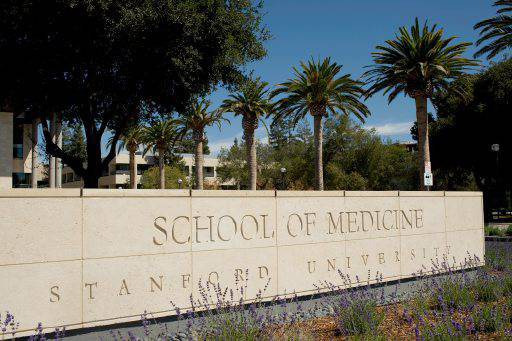
Training Future Leaders in Transfusion Medicine
As an academic blood center, teaching is an integral part of our mission at Stanford Blood Center (SBC). In 2007, to further this mission, SBC helped establish the Stanford Health Care (SHC) Transfusion Medicine (TM) Fellowship Program to train the future transfusion medicine specialists. The initial position was funded by SHC, our parent hospital, and was followed by a second position in 2011 funded by Lucile Packard Children’s Hospital Stanford (LPCH). To date, 17 fellows have been trained and interest in the program continues to grow.
The Accreditation Council for Graduate Medical Education (ACGME) oversees training for the Transfusion Medicine (TM) specialty which they define as the practice of laboratory and clinical medicine concerned with all aspects of blood transfusion. The fellowship program must integrate ACGME competencies, including:
- Patient care and procedural skills
- Medical knowledge
- Practice-based learning and improvement
- Interpersonal and communications skills
- Professionalism
- Systems-based practice
The TM Fellowship Program at SHC is unique in the industry due to its immersive rotation throughout the SHC and LPCH Transfusion Services and SBC. Areas that fellows might work in include complex antibody work-ups, surgeries, platelet refractoriness, and blood inventory. Fellows work directly with our Medical Directors (MDs) and front-line staff on a variety of projects and are especially instrumental in providing the patient usage data that the blood center relies on for donor recruitment, and in coordinating and communicating patient issues that affect both SBC and SHC Transfusion Services.
Fellows in the TM program cross over between the Transfusion Service and other specialties and have a close working relationship with the hospitals we serve. Their day-to-day goal is to ensure that patients are receiving the right blood products when they need them. Ultimately, they may go on to become medical directors themselves in the blood banking industry or at a hospital.
“Our goal is for TM fellows to acquire the knowledge base and clinical expertise for academic careers in TM and to be qualified for the medical directorship of a hospital-based transfusion service and/or a blood center,” said Dr. Lawrence Tim Goodnough, director of the Transfusion Medicine Fellowship program at SHC.
SBC is proud to be part of the training of future TM specialists as an ongoing effort to continuously improve transfusion practices. To learn more about training opportunities at SBC, visit us at https://stanfordbloodcenter.org/about/sbc-careers/training-opportunities/.
